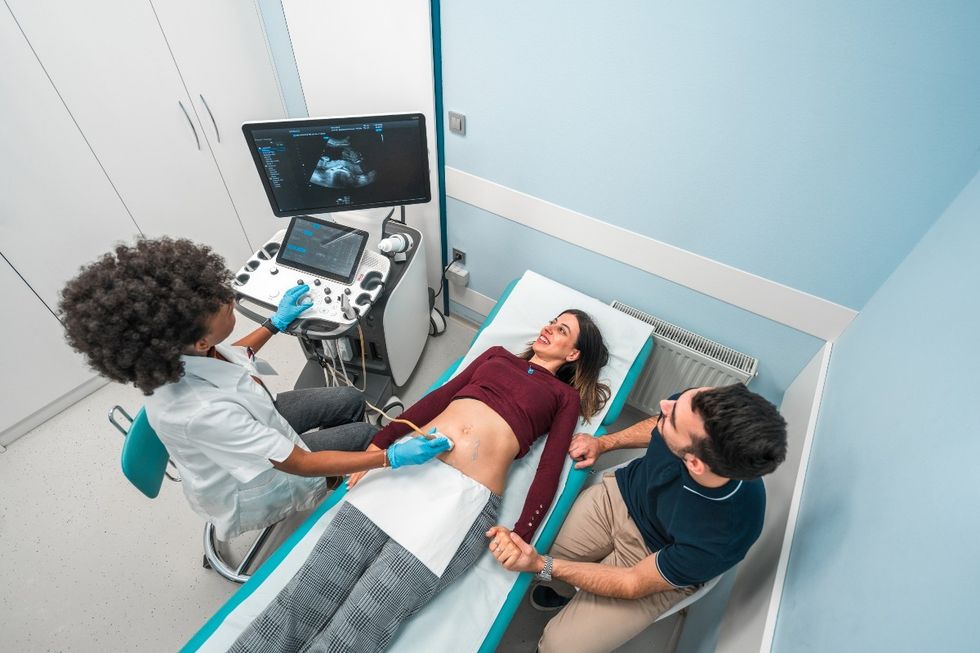Common drugs given to millions of pregnant women at risk of preterm births linked to autism in children

Common anti-inflammatory drugs taken by millions of pregnant women worldwide may increase their children’s risk of developing autism by up to 50 percent, according to new Danish research.
The study examined the effects of glucocorticoid steroids, which are frequently prescribed during pregnancy to prevent premature births and treat conditions such as asthma and rheumatoid arthritis.
Scientists found that babies exposed to these drugs in the womb faced significantly higher risks of not only autism but also intellectual disabilities, ADHD, and anxiety disorders.
The findings raise important questions about the widespread use of these medications during pregnancy, as glucocorticoids are currently prescribed to treat various inflammatory and autoimmune conditions in expectant mothers.
The study analysed data from more than 1 million infants born between 1996 and 2016.
Of these children, over 300,000 were exposed to glucocorticoids whilst in the womb.

The research team followed up on the children’s development over a 15-year period, examining their medical histories to assess the impact of glucocorticoid exposure.
The study included two main groups of mothers: those given steroids to prevent premature birth, and a larger group who received the drugs to treat autoimmune or inflammatory conditions.
Researchers tracked the children’s diagnoses and development through their medical records, revealing patterns in neurodevelopmental outcomes.
Glucocorticoids are a class of steroids that mimic cortisol, a hormone produced by the adrenal gland known for its anti-inflammatory properties.
These medications are commonly prescribed during pregnancy to aid foetal organ development and maturation, particularly in cases where there is a risk of premature birth.
HEALTH LATEST:
- How to live longer: Nutritionist shares two snacks which have been linked to a ‘longer life’
- ‘Absolutely shocking!’ NHS blasted as migrants jump queue at A&E and receive ‘priority’ services
- Surge in flu cases has ‘high impact on hospitals’ as hospitalisations quadruple in ONE month
They are also frequently given to pregnant women with conditions such as asthma, lupus, and rheumatoid arthritis to suppress immune responses.
It is estimated that two to three percent of the general population currently takes glucocorticoid medications.
Common forms of these drugs include prednisone, triamcinolone acetonide, and methylprednisolone.
For pregnant women at risk of preterm delivery, the steroids betamethasone and dexamethasone are typically administered via injection into the mother’s arm, leg, or buttocks.
These drugs are known to pass through the placenta to reach the developing foetus.
Children whose mothers took glucocorticoids to prevent preterm delivery were 50 per cent more likely to be diagnosed with autism compared to unexposed children.
This group also showed 30 per cent higher rates of intellectual disabilities and ADHD.
The risk of mood, anxiety, and stress-related disorders was 50 per cent higher in these children.

For children whose mothers took the drugs for autoimmune or inflammatory conditions, the impact was also significant.
These children showed a 30 per cent higher risk of developing autism and ADHD.
They also experienced 40 per cent higher rates of mood problems and intellectual disabilities.
The findings were consistent across both major groups studied, suggesting a clear link between prenatal glucocorticoid exposure and neurodevelopmental outcomes.
The researchers emphasised the need for ‘continued caution’ in prescribing glucocorticoids to pregnant women and noted that for women with autoimmune or inflammatory conditions, alternative medications might prove safer.
However, the scientists acknowledged that more research is needed, as evidence for alternative treatments remains limited.

